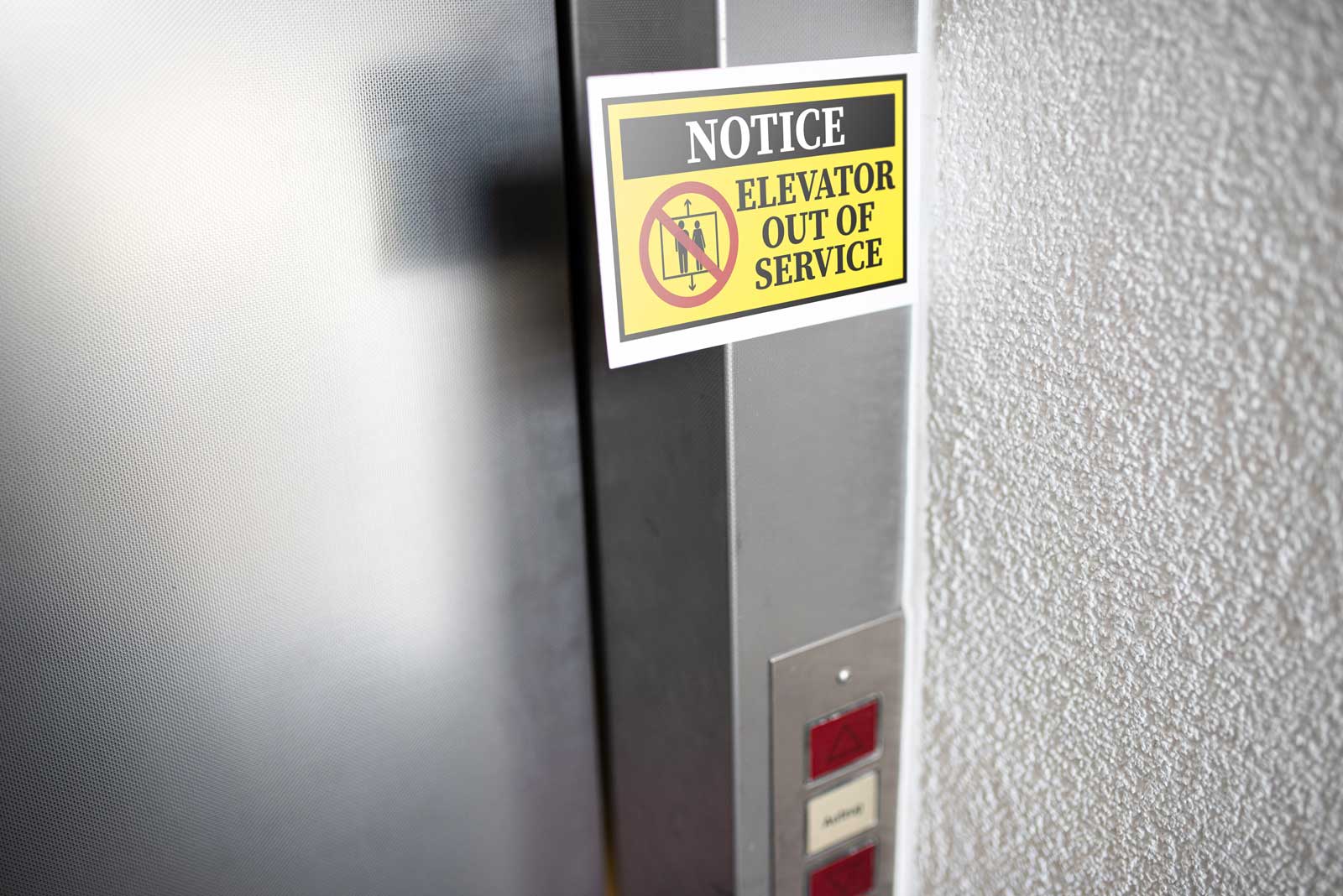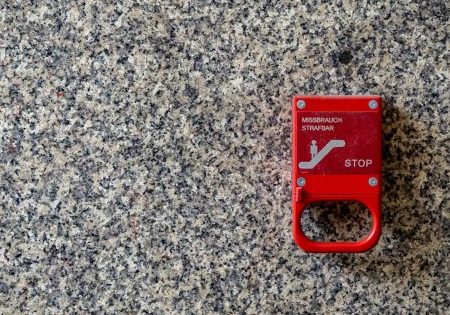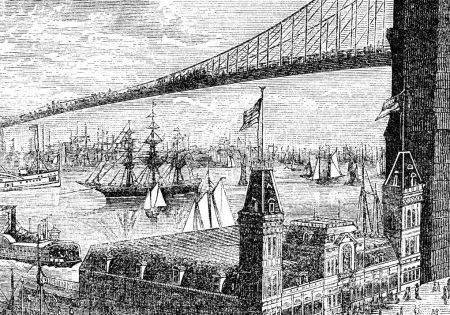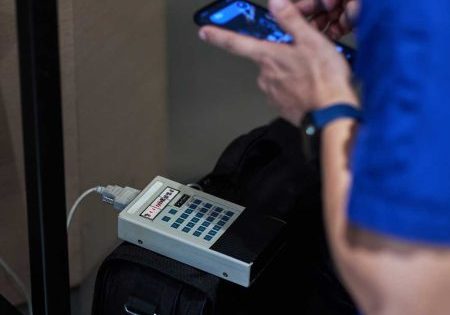How Lift Technology Fundamentals Impact Safety and Maintenance in CARICOM Nations through Globalization and Consolidation
by Richard Lochin
This paper was presented at the 2024 International Elevator & Escalator Symposium in Paradise Island, Bahamas.
Abstract
As the global landscape of vertical transportation (VT) evolves, understanding the nuanced factors influencing safety and maintenance becomes paramount. The most common form of professional training that exists in the regional lift industry stems from organizational basic training or manufacturer’s training where brand-specific teachings are offered and deemed as rudimentary. In drawing from our company’s extensive experience conducting safety audits in six countries in the Caribbean region, Eleve8 Plus has observed and unraveled the distinct challenges and opportunities intrinsic to ensuring lift safety and implementing effective maintenance measures. Our analyses to date have underscored the importance of considering regional subtleties in conjunction with broader global trends when devising strategies to enhance safety and maintenance standards. In essence, this study offers a holistic understanding of the impact of a lack of regulated safety and maintenance standards and protocols on the lift industry.
By scrutinizing factors such as technological advancements, regulatory frameworks and local infrastructure, we provide comprehensive insights into the multifaceted nature of safety and maintenance practices from the global industry to the regional lift industry. Furthermore, we propose tailored approaches through extensive analysis of how feasible the introduction of a fundamental technological program in lift engineering would be to the local lift industry in CARICOM Member States supplementing the CARICOM Single Market and Economy (CSME) surrounding safety and maintenance practices, with a particular emphasis on understanding the influence of worldwide consolidation and globalization on VT systems, addressing the specific needs of different regions of the Caribbean. By bridging theoretical insights with practical observations, we aim to contribute to the ongoing discourse surrounding the optimization of safety and maintenance standards in VT systems regionally, ultimately fostering safer and more efficient VT for all.
Introduction
The lift industry is integral to infrastructure in the Caribbean region. Consolidation and globalization’s impacts on safety and maintenance can enhance the region’s standardization and management. Presently, lift manufacturing organizations provide the most frequented form of training in the local lift industry, which can often be seen as in-house training or manufacturer’s training in a brand-specific capacity. Eleve8Plus Ltd. has had extensive experiences in the lift industry for the past nine years, and many observations have been made for improvements in safety and maintenance. With many advancements in the technology of the lift industry, as well as the modernization of infrastructure, reshaping our current regulations and standards in safety and maintenance can significantly address the challenges that are faced regionally. A research project was carried out to determine how feasible the introduction of a fundamental technological program in lift engineering would be for the local lift industry of Trinidad and Tobago.
Through surveys, interviews and secondary research, data was collected that allowed for more insight into the standards and regulations that exist presently in the industry. Surveys, interviews and a progressive developmental program for introductory principles would provide more educational resources for interested individuals, which would result in a significant increase in more qualified persons, thus increasing value engineering in the local lift industry. The following paper explores how the Caribbean region can benefit by leveraging and properly adopting global standards and consolidated expertise into the lift industry.
Literature Review
Fundamental training is essential in creating a strong foundation for any sustainable career. The local lift industry of Trinidad and Tobago, even regionally, currently lacks such an initiative. It is important that a solid progressive program exists that would allow for an extensive foundation of learning to occur. With reference to the development of a learning program, it is essential that each learner is motivated and engaged with a personal benefit (Adams, Ehrl, Kaxzmarczyk, Meier, 2018).
In Canada, the BC Safety Authority proposed that a formal fundamental Elevator Mechanic Certification Program was relevant, as it would exist to elevate the performance skills and evaluate the qualifications of technicians and mechanics in the lift industry. The article expresses that there are currently no uniform standards that exist in the industry to determine the qualifications of elevator mechanics in British Columbia. “The proposed Elevator Mechanic Certification Program is designed to remedy this situation,” said the BC Safety Authority in 2010. Adams et al. (2018) states that, due to the different histories of each core region, the learning offerings differ from region to region. In the local Caribbean region, especially in Trinidad and Tobago, fundamental principles do not exist and, as such, hinder the development of the industry.
The paper authored by Adams et al. (2018) continues to state that, with corporate learning programs, a skilled and well-educated workforce will be essential, can be described as its “backbone” and is a key success factor.
Further research also shows that, on a multidisciplinary basis, including electrical, mechanical and even environmental disciplines in engineering, when applied to lift technology in the lift industry, allow for the inclusion of more education-based projects on project-based learning, which can be applied to the lift industry on a fundamental basis.
Lutfi Al-Sharif (2019), a professor at the University of Jordan, stated, “Providing an introductory course in elevator engineering allows students to reinforce concepts in non-applied basic courses and provides an opportunity to develop multi-disciplinary integrated skills.”
Different researchers share similar views regarding the importance of fundamental programs and the importance of education and learning in the workforce. It is evident that to progress in any industry, development needs to begin with a proper foundation. This will be beneficial to the industry on a long-term basis and will be beneficial in sustaining the local lift industry.
Methodology
The main objective of the study conducted was to assess how beneficial a fundamental program in lift technology would be to the local lift industry regionally. The project was carried out over a two-month period.
Data was collected through primary research methods such as interviews and questionnaires, as well as from relevant articles and documents that were sourced online for reference. Two research methods of data collection were used, where both qualitative and quantitative data were collected for analysis.
It was discovered that no fundamental training programs exist in the Caribbean region, so on a small scale, a local program would be beneficial to Trinidad and Tobago.
The research sampling method that was used in this study was specific to the local industry where systematic sampling was carried out. Subjects were specifically selected at regular intervals over a period of four days. Four companies were subjected to data collection. Questionnaires were presented to these members for data collection. A total of 25 participants were involved, where 21 were given questionnaires to complete and four were subjected to interviews, as they were the managers of the selected companies. Data was collected from participants where the findings would be further presented with an accompanying analysis of the data for the final report of this project.
Discussion
Presently, no educational programs exist in Trinidad and Tobago, and, by extension, the Caribbean region, that seek to improve the local lift industry. The Caribbean lift industry faces challenges related to safety and maintenance, primarily due to the lack of knowledge on codes and standards governing the lift industry, limited training programs and technological discrepancies. Most training programs are manufacturer-specific, lacking essential foundational principles and creating gaps in technical knowledge and safety practices. The rapid advancement of lift technology further complicates the situation, as local standards and practices often fail to keep pace, leading to misalignments between technology and regulatory frameworks. Regional subtleties, such as diverse infrastructure and economic constraints, also impact lift performance and maintenance. Variations in building structures and environmental conditions across the Caribbean, coupled with limited financial resources, exacerbate reliance on outdated practices and hinder investment in advanced technology and comprehensive training.
To address these issues, a proposed fundamental technological program aims to enhance foundational knowledge and align with global standards while addressing regional needs. The program is designed to provide comprehensive training in lift technology, incorporating essential principles beyond manufacturer-specific knowledge and integrating international best practices. It will feature theoretical training, practical labs, safety workshops and certification with ongoing professional development opportunities. By aligning with the CSME, the program seeks to standardize practices across CARICOM Member States, promote regional collaboration and support economic development. This initiative not only addresses local challenges but also bridges the gap between global trends and regional realities, ensuring that the Caribbean lift industry can improve safety and efficiency while staying current with international advancements.
A study was conducted to determine whether the introduction of a course or program in lift and escalator technology would be a feasible approach for the development of the educational structure and foundation of the local lift industry. In the form of questionnaires and formal interviews, data collection was done using a systematic sampling method where subjects with a background in lift technology were selected at regular intervals.
In this study, research showed that many limitations existed in the industry due to a lack of introductory education. In many instances, most that were subjected to a questionnaire were not fully trained or educated from an elementary standpoint in the industry.
Among the participants that responded were field workers and technicians in the lift industry. It was also seen that the only form of training offered to participants was very limited, brand-specific training or training that was provided by the company where respondents are employed. As a result, the progress and growth of the industry would slowly diminish as less qualified personnel would contribute negatively. For instance, an increased risk in safety exists, as no solid educational or training foundation exists.
Economic limitations also exist where there would be a constant need to purchase or re-purchase equipment or components of the lift, as a lack of basic fundamental knowledge would result in faulty maintenance, repairs or even installation. Substandard work results in unnecessary spending, which would negatively affect lift installation and maintenance companies in the industry, as well as the manufacturer. There are many advantages to fundamental training and education. Foundational training allows for a more efficient and effective grasp of the basics, which would allow for a student or employee to excel at the next level. Foundational classes will offer students valuable study skills (Ritchie 2020). To minimize such limitations, the importance of basic fundamental knowledge and training is seen with benefits such as more qualified persons on the field and an increase in safety awareness. Starting from the basics would result in more competent technicians and personnel in the field, as gaps in the abilities of the work being carried out would be filled from the inception of training in the respective field of the lift industry.
Other benefits include enhanced productivity, as well as a higher level of competency and experience in employees and technicians in the field. Figure 1 shows a clear gender gap in the number of males versus females that are employed in the industry. The number of respondents that were approached were mostly males versus one female field worker who was employed. This is due to the idea of males being the preference for hire as technicians and field workers. A program creates an opportunity for growth in the industry for more women, as it would allow for easier access to employment resulting in a general increase in the number of women employed in the industry. It would also allow for the general population, as well, to gain easier access to training and education for new and existing workers of the lift industry to grow and contribute more efficiently and effectively.
The aim of this project was to assess whether the idea of a fundamental program would be feasible and generate interest among persons in the lift industry, as well as attract the attention of those that might be interested in enrolling in the local lift industry.
Figures show 100% of the respondents agreed that a program introducing lift technology fundamentals would be beneficial to the industry. Some methods that could be employed to carry out the project would be to introduce fundamental theoretical training, practical labs and to provide access to more information via the means of websites and books. Finally, applications such as workshops and seminars on safety awareness could also be introduced.
Conclusion
The study underscores the urgent need for a comprehensive approach to enhancing safety and maintenance standards in the Caribbean lift industry. The current challenges, such as implementing regulations and inadequate training, are compounded by rapid technological advancements that outstrip local regulatory and training frameworks. By addressing these limitations and aligning with global standards, the proposed fundamental technological program presents a viable solution to improve industry performance and safety. This program not only offers a robust framework for bridging gaps in technical knowledge, but also ensures that practices are updated to reflect international best practices.
The integration of this program with the CSME will facilitate greater regional consolidation and support development by standardizing lift safety and maintenance practices across member states. This alignment with global trends and regional economic integration is essential for creating a safer and more efficient VT system, thereby enhancing the overall quality and reliability of lift services in the Caribbean.
Recommendations
Several recommendations were found from research with reference to research papers, as well as through the responses to the interviews and questionnaires with 100% of the respondents agreeing that an introductory program would be beneficial. The following recommendations are suggested:
- To engage newly graduated students in the engineering and technical fields of study, entering the workforce with university or school career days to inform them of the availability of the program.
- To research academics for advancements in program development from the introductory level to a more developed level so as to further enhance the progress of the lift industry in both theoretical and practical backgrounds.
- This would then lead to a certificate program that would have the potential for growth to a diploma program.
- It was also recommended that partnering with relevant bodies such as lift experts and international organizations would also allow for more expertise involved, which would be beneficial for progress.
- It would also create an increase in proper safety awareness, reducing risk and injury with the inclusion of more competent people in the industry. So, it is recommended that partnering with relevant safety bodies such as OSHA would be beneficial.
References
1. Adams, Ehrl, Kaczmarczyk, Meier (2018). “The Optimization of a Learning and Training Portfolio at a Multi-National Manufacturer.”
2. American Association of Mechanical Engineers (2023). “ASME’s Safety Standards Enable Elevators to Reach New Heights.” [online] Available at: asme.org/topics-resources/content/safety-standards-enable-elevators-to-reach-new-heights [Accessed February 8, 2023].
3. BC, Safety Authority (2014). “Proposal to Implement an Elevator Certification Program Discussion Paper.”
4. Lutfi Al-Sharif (2019). “A Template for an Undergraduate Elective Final Year Lift (Elevator Engineering Course).”
5. Ritchie (2020). “Washington State University; The School of Biological Sciences Post.” [online] Available at: sbs.wsu.edu/the-importance-of-foundational-biology-courses/#:~:text=The%20better%20students%20master%20foundational,they%20get%2C%E2%80%9D%20said%20Dr.
6. The Minerals. Metals and Materials Society (1998). “Educational Approaches to Teaching Introductory Courses” [online] Available at: fleetmaintenance.com/shop-operations/employees-and-training/article/21017885/training-can-take-your-techs-from-good-to-great.
7. Williams H (2018). “The Importance of Providing Technician Training Opportunities.”
Get more of Elevator World. Sign up for our free e-newsletter.










